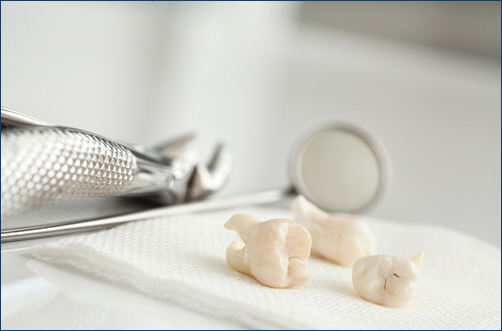Wisdom Teeth Removal: Preparing for Surgery and Post-Operative Care
Wisdom teeth removal is a common dental procedure performed to prevent or address issues caused by the last set of molars. These teeth often emerge during late adolescence or early adulthood and can cause pain, infection, or misalignment if there isn’t enough room for them in the mouth. Preparing for the surgery and understanding the post-operative care are essential for a smooth recovery.
Preparing for Wisdom Teeth Removal
-
- Consultation and Planning: The first step in preparing for wisdom teeth removal is a consultation with your dentist or oral surgeon. They will assess the position of your wisdom teeth through X-rays and discuss the necessity of extraction. This is the time to ask questions about the procedure, including what to expect and any potential risks involved.
- Pre-Operative Instructions: Your dentist will provide specific instructions to follow before the surgery. This may include fasting for a certain period, arranging transportation, and planning for time off work or school. It’s important to follow these guidelines closely to ensure the procedure goes smoothly and to minimize complications.
- Prepare Your Recovery Space: Before the surgery, prepare a comfortable recovery area at home with necessary supplies. Stock up on soft foods such as yogurt, applesauce, and mashed potatoes, as well as cold compresses and prescribed medications. Having everything ready in advance will make your recovery period more comfortable.
 The Surgery Day
The Surgery Day
-
- Procedure Details: Wisdom teeth removal is usually performed under local or general anesthesia, depending on the complexity of the extraction and your comfort level. The surgery typically lasts between 45 minutes to an hour. Your oral surgeon will carefully extract the teeth and stitch the gums if necessary.
- Post-Surgery Transportation: Arrange for someone to drive you home after the procedure, as the effects of anesthesia will make it unsafe for you to drive. It’s also helpful to have someone stay with you for the first few hours to ensure you’re comfortable and assist with any immediate needs.
Post-Operative Care
-
- Managing Pain and Swelling: After the surgery, you may experience swelling, pain, and bruising. Use prescribed or over-the-counter pain medication as directed by your dentist to manage discomfort. Apply ice packs to your cheeks for 15-20 minutes at a time to reduce swelling.
- Diet and Hydration: Stick to a soft diet for the first few days after surgery. Avoid hot, spicy, or crunchy foods that can irritate the surgical site. Stay hydrated by drinking plenty of water, but avoid using a straw, as the suction can dislodge the blood clot and lead to a painful condition known as dry socket.
- Oral Hygiene: Gently rinse your mouth with warm salt water to keep the surgical area clean, starting 24 hours after the procedure. Avoid brushing the extraction sites directly until your dentist advises it’s safe. Good oral hygiene will aid in the healing process and prevent infection.
Wisdom teeth removal is a routine procedure that requires proper preparation and post-operative care to ensure a smooth recovery. By following your dentist’s instructions, managing pain effectively, and maintaining good oral hygiene, you can minimize complications and return to normal activities swiftly. Always reach out to your dental professional if you experience any unusual symptoms or have concerns during your recovery.



